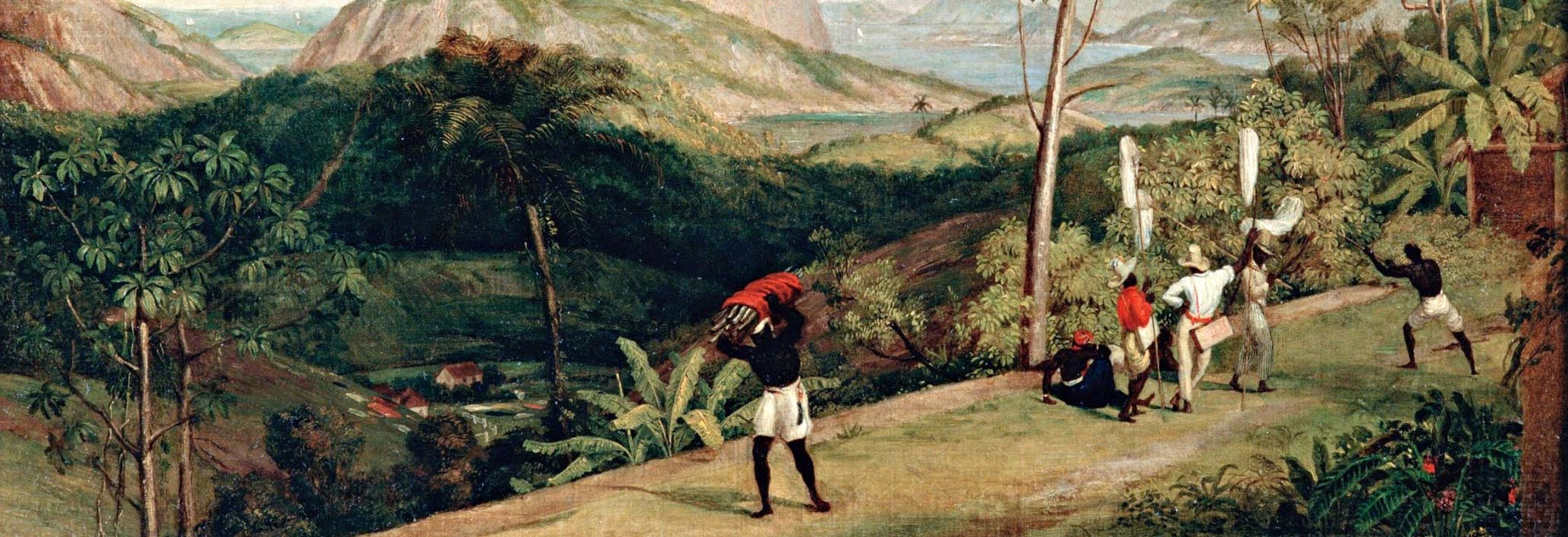Poet, considered a founder of African American literature, was born around 1753, probably among the Fulani peoples living near the Gambia River in West Africa. Her poetry and prose indicate familiarity with animistic ancestor worship, solar worship, Islam, and an African consciousness she brought to North America after she was captured aged 7 or 8, enslaved, and forced aboard the Phillis, a brigantine owned by Timothy Fitch of Medford, Massachusetts and captained by Peter Gwinn of Boston. According to the Slave Voyages Database, she embarked from the Windward Coast of Africa with 95 fellow Africans and was one of 76 who survived the deprivations of the ship’s cramped and squalid conditions and arrived in Boston 245 days later, wearing only a scrap of carpet. On 11 July 1761, she was sold on the block “for a trifle” to John and Susanna Wheatley, prominent Bostonians who named her after the slave ship that brought her to America. Her name was thus a constant reminder of her enslavement and suffering during the Middle Passage.
Seeing Phillis attempt to write, the Wheatleys encouraged her to read and write, first in English, then Latin. At age 12 she published her first poem in a local newspaper, but many Bostonians doubted that a young African woman could craft such reasoned and elegant poetry. She successfully defended her intelligence and literary skills before an inquisition by New England’s finest minds, but still failed to find a local publisher for a collection of her poetry. Wheatley’s Poems on Various Subjects, Religious and Moral, the first book written by a sub-Saharan African in English, was therefore published by the Countess of Huntingdon in London in 1773. An overnight sensation in Europe, Wheatley was feted as a prodigy by London’s literati. Returning to Boston, she was granted her freedom, and continued to write poetry, including one honoring George Washington. But her fame was fleeting. A proposed second poetry collection was sold off by her husband, John Peters, a pintlesmith who was perhaps born free, and who abandoned her. Wheatley suffered from asthma (a legacy of the Middle Passage) and the death of three children, before dying in poverty and obscurity, aged 31, in 1784.
Phillis Wheatley was an inspiring example to nineteenth-century African American writers such as Ann Plato, Frances E.W. Harper, Jarena Lee, and Alice Dunbar Nelson. In the view of scholar Henry Louis Gates, Jr., she is the mother of African American letters. She was a polyglot who knew English, Fulani, possibly some Arabic (she was observed soon after her purchase to be making strange, though indecipherable markings on a wall), and Latin. From West Africa to New England to England, she negotiated with considerable success the mixture of white cultures and languages which encircled the Atlantic. She was thus a fine example of what historians such as Ira Berlin, Linda Heywood, and John Thornton have classified as Atlantic Creoles.
Read the full, original biography by John Shields in The Dictionary of African Biography.
Online Resources
Voyage of the Phillis, Slave Voyages http://www.slavevoyages.org/voyage/25481/variables
Poetry Foundation https://www.poetryfoundation.org/poets/phillis-wheatley
Massachusetts Historical Society, Henry Louis Gates & Peter Galison on Phillis Wheatley. "No More, America" https://www.youtube.com/watch?v=DTT6qD5hoxE
Phillis Wheatley Historical Society http://www.phillis-wheatley.org/
Bibliography
Carretta, Vincent, ed. Phillis Wheatley: Complete Writings (2001).
Gates, Henry Louis, Jr. The Trials of Phillis Wheatley: America's First Black Poet and Her Encounters with the Founding Fathers (2003).
O'Neal, Sondra A. Critical Essays on Phillis Wheatley (1982).
Shields, John C., ed. The Collected Works of Phillis Wheatley (1988).
Shields, John C., ed. (with Eric D. Lamore). New Essays on Phillis Wheatley (2011).
Author
John C. Shields
Adapted by
Steven J. Niven
Contributing Institutions
Hutchins Center for African & African American Research, Harvard University, Cambridge, MA.
Oxford University Press (USA) African American Studies Center.





